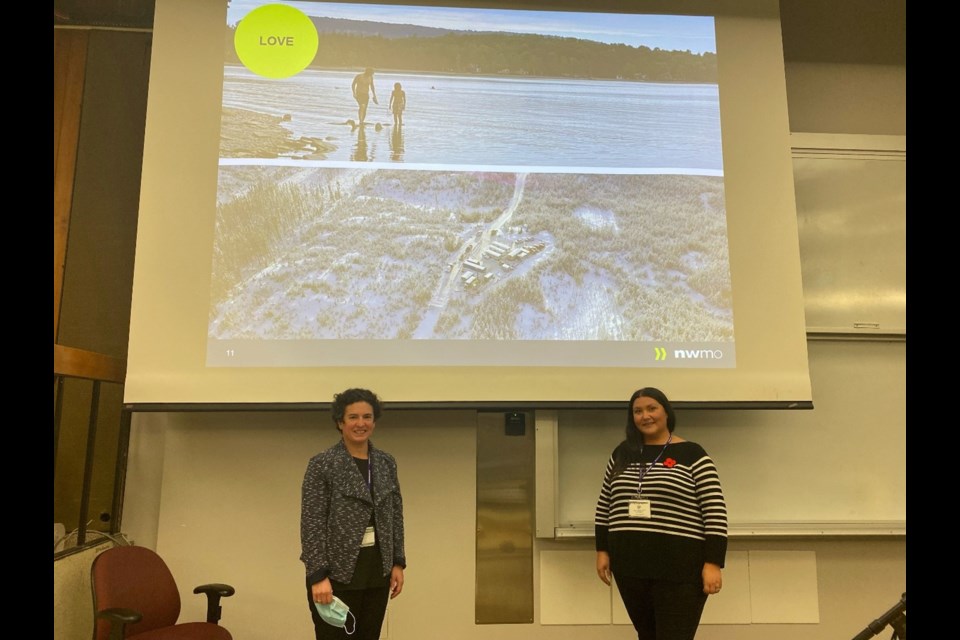THUNDER BAY -- Jessica Perritt understand that Indigenous voice is an integral part of protecting Mother Earth.
Perritt, director of Indigenous innovation with Turtle Island Institute, is on a leave from her role with Nuclear Waste Management Organization. While with NWMO she served as Indigenous Relations and Manager of Indigenous Knowledge and Reconciliation.
One of her most recent projects was to contribute her views regarding a global science policy study knows as the IPBES values assessment, a cross-disciplinary report, on ways people view and value nature and how this perspective can inform policy and decision-making.
For Perritt, a voice in this decision-making process is just one aspect of ensuring that all partners understand the importance of respecting and including Indigenous voice, and protecting Mother Earth.
“Collectively, we need to understand the importance of an Indigenous voice. This is important in order to have space for multiple ways of knowing, in order to co-create more effective solutions to protect Mother Earth,” stated Perritt.
Perritt stresses the importance of reciprocity and relationship, with Mother Earth. Traditionally, Indigenous peoples are caretakers of Mother Earth and have a special relationship with the earth and all living things, a relationship founded on their spirituality.
According to the Assembly of First Nations of Ontario, “First Nations Peoples’ have a special relationship with the earth and all living things in it. This relationship is based on a profound spiritual connection to Mother Earth and all living things, a relationship founded on spirituality.” This spirituality maintains this special connection between Indigenous Peoples and Mother Earth.
Perritt stresses the importance of reciprocity and relationship, with Mother Earth. Traditionally, Indigenous peoples are caretakers of Mother Earth and have a special relationship with the earth and all living things, a relationship founded on their spirituality. This spirituality maintains this special connection between Indigenous Peoples and Mother Earth.
Recognizing these traditional values and this relationship only magnifies the importance of protecting the environment, and all human and non-human species is dependent on protecting Mother Earth.
According to Perritt, it is also important that Indigenous knowledge systems are ingrained in the decision-making, processes by policymakers, and that relationships with the land is also respected.
“We need to develop a relationship of reciprocity and the relationship with the land. Communities will decide what knowledge they want to share. We need to foster sustainability and integrate Indigenous knowledge and values. The relationship one has to land affects how decisions are made,” explained Perritt.
Perritt shared how she’s lived in these Indigenous communities and has been able to share the ecological research with expert scientist. She continues to share her knowledge and insights with these expert scientists, and other key partners like NWMO.
She is happy about the opportunities given to her, to get key partners to think more globally and in terms of next steps she sees the importance of making sure decisions and outcomes are in terms of protecting Mother Earth. “Indigenous knowledge is rooted in land and place. This knowledge is sophisticated. There is a tremendous opportunity globally that Indigenous voice and Indigenous knowledge is at the table regarding decisions that affect Mother Earth,” shared Perritt.



